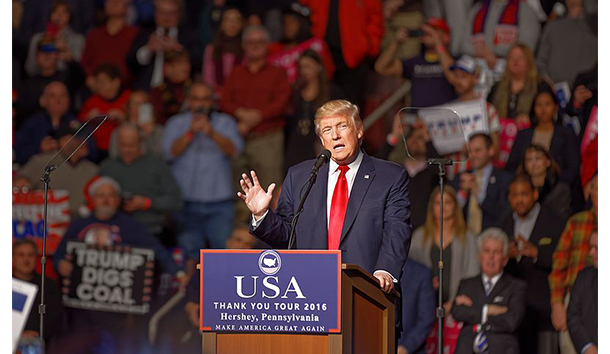
Donald Trump is making the world go crazy. Here in Westminster, the political and media establishments are still convulsing following his election. And the angry shock at the top is rippling through British society.
Most Brits remain convinced that, while Brexit and Trumpism were driven by similar forces, the two phenomena are not one and the same. The Vote Leave campaign was politically correct, after a fashion, whereas Trump was not. Liberal conservatives keep saying that Leave won because it presented an “outward-facing” vision of Britain’s global future, which is a bit disingenuous. What is true, however, is that while Nigel Farage and UKIP—our equivalent of Trumpism—played a crucial part, Brexit won because mainstream conservatives such as Boris Johnson and Michael Gove led the charge. The British are arguably less susceptible to maverick demagogues than Americans—or more cowed by the thought police, depending on how you look at it.
So now, in response to the Trump across the water, the British right has largely resorted to default mode, sneering at Americans and indulging our superiority complexes. Trump’s silly tweets are passed around with lots of ironic amusement. We don’t stop to consider that Trump himself might be consciously funny, or playing a game we don’t quite understand. It’s easier to assume that the stupid Yanks have fallen for a moron. We count our lucky stars that, after Brexit, we have been landed with a less colorful but more sensible leader in Theresa May. She seems to have recognized that voters are fed up with internationalism-as-usual, but she isn’t an orange horror show. “If you are a citizen of the world you are citizen of nowhere,” she said recently, which disturbed the commentariat but did nothing to stunt her growing popularity. Some center-right and “Blue Labour” observers now hope that May could be a third-way figure between what’s known as neoliberalism and the so-called new populism. She could harness the power of the revolt against the elites and use it to create a new political consensus based on sound Conservative principles. It is also hoped that, in Trump, May may have a much-needed ally against the European Union.
Are happy days ahead, then, for the special relationship? Could May be Thatcher to Trump’s Reagan in the new postliberal power play?
Probably not. May, who refused to back Brexit until she became prime minister after the referendum, is reluctant to embrace Trump publicly. And Trump doesn’t seem to have much of a clue who our prime minister is. “If you travel to the US you should let me know,” he told May in their first telephone call, according to a leaked transcript. The remark, which was actually quite charming, prompted lots of pompous British chortling about how unpresidential the President-elect was. Certainly, it suggested Trump didn’t take the British government too seriously. But then, why should he?
Donald Trump is closer to Nigel Farage, who’s not even a member of Parliament, than he is to anybody in May’s administration. That is because of Trump’s senior counselor and chief strategist, Steve Bannon. Ahead of the 2015 British general election, Bannon established links with UKIP as part of his global Tea Party revolution against globalism. The alliance backfired, but Bannon stayed close to Farage, who is still employed as a columnist for Breitbart. (“The Idea That Steve Bannon Is Anti-Semitic is Almost Laughable,” was Farage’s latest contribution. Almost, Nigel?)
Trump appalled people who take diplomacy seriously when he tweeted on November 22, “Many people would like to see @Nigel_Farage represent Great Britain as their Ambassador to the United States. He would do a great job!” Stuffy Brits pointed out that it was not The Donald’s place to make such a suggestion. Well, why shouldn’t he? Britain doesn’t have to take his advice.
May’s government wants nothing to do with Farage because he is politically toxic. But Theresa may be missing a trick. Farage is a sworn enemy of the political class, but he is a patriot. If the prime minister were willing to swallow her pride for the national interest and work with him, she might be able to forge an important bond with the incoming Trump administration.
She won’t, though. May is above all risk-averse. She already seems eager to distance herself from Boris Johnson, which is odd seeing as one of her first moves as PM was to make him foreign secretary. Johnson has a lot in common with Trump. The two men were born in New York. They share an appetite for women and a love of attention. Neither of them takes politics seriously, and both don’t seem to mind being mistaken for fools. The Boris has dissed The Donald in the past, but—canny man that he is—has made friendlier noises since November 8. Johnson is also a master flatterer, which The Donald would like. For Blighty’s sake, May should send him to Washington—or to the new subroyal court in Trump Tower. But she probably won’t. For now, it’s more important to her that Brexit seems nothing to do with Trump, and vice versa.
[Image credit: By Michael Vadon (Own work)]


Leave a Reply